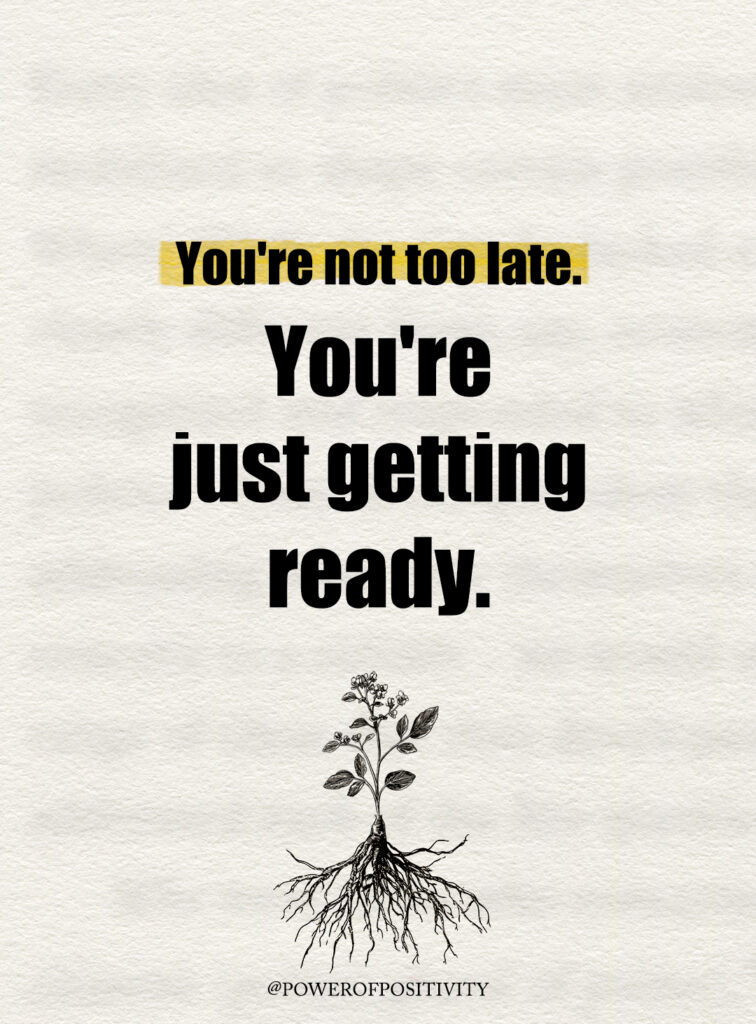Mental health struggles are more common than most people realize. Feeling stressed, anxious, or low from time to time is part of life, but when these feelings stay for too long, they can begin to affect how someone works, connects with others, and takes care of themselves. These changes are often quiet at first, but they can grow into bigger problems if they go unnoticed.
Catching the signs early makes a big difference. It allows people to get support before things become overwhelming. Many don’t realize they’re struggling with mental health until it starts to impact their daily routines. Knowing what to look for helps protect well-being and encourages timely action toward healing.
Understanding Mental Health Challenges
Stress is something most people deal with, but not all stress is the same. Short-term stress, like meeting a deadline or getting stuck in traffic, usually passes once the situation is over. Ongoing mental health concerns last much longer and don’t go away with rest or distraction. These struggles can affect how someone thinks, feels, and handles everyday life.
When a person is struggling with mental health, the changes can show up in daily routines. Work may feel harder, schoolwork may slip, or relationships may start to feel distant. Small tasks like cooking or cleaning can suddenly feel overwhelming.
Not everyone experiences the same signs in the same way. Some people notice more emotional changes, while others feel it in their body. What matters most is paying attention to lasting patterns instead of writing them off as “just stress.”
10 Signs You Shouldn’t Overlook
When someone is facing mental health challenges, the warning signs often appear in small ways before they become serious. Paying attention to these changes can make it easier to step in early and get the right support. Here are ten signs worth noticing:
1. Constant Sadness or Hopelessness
Feeling down from time to time is normal, but when sadness sticks around day after day without an obvious reason, it may point to something deeper. This type of sadness often comes with feelings of emptiness or hopelessness, making it hard to find joy in things that once mattered. It’s not about one bad mood—it’s about a lasting emotional weight that doesn’t seem to lift. If someone often says they feel numb, empty, or like life has no meaning, that can be an important sign that shouldn’t be brushed aside.
2. Withdrawal from Friends and Family
Spending less time with people can sometimes mean a person simply needs space, but steady withdrawal from loved ones can signal emotional strain. Skipping gatherings, ignoring phone calls, or canceling plans regularly may show more than just busyness—it can reflect deeper struggles. Many people pull away when they don’t have the energy to connect or when they feel others won’t understand what they’re going through. If isolation continues, it may leave the person feeling even more alone, creating a cycle that worsens their condition.
3. Noticeable Mood Swings
Everyone experiences ups and downs, but strong mood swings that shift quickly are different. One moment, a person may seem upbeat, and the next, they may feel irritable, anxious, or sad without warning. These sudden changes can confuse both the individual and those around them. Mood swings can strain relationships and make it hard to keep daily routines steady. They may also lead to guilt or frustration when the person doesn’t understand why their emotions are swinging so widely. This is often a clear sign of emotional imbalance that needs attention.
4. Ongoing Fatigue and Sleep Problems
Restless nights, early waking, or oversleeping can all point toward mental health struggles. Sleep and mental well-being are closely linked—when one is off, the other often follows. Constant tiredness during the day, even after a full night’s rest, can also be a warning sign. Some people may sleep too much as a way to avoid daily challenges, while others struggle to sleep at all because their mind won’t quiet down. Either way, poor sleep patterns and ongoing fatigue can quickly affect mood, focus, and energy, making everyday life harder to manage.
5. Difficulty Concentrating or Making Decisions
Mental health challenges often cloud thinking, making it harder to focus or remember details. Simple tasks, like following a conversation, reading, or finishing work assignments, can feel like heavy lifting. Even everyday decisions, such as choosing what to eat or what task to do first, may become overwhelming. This mental fog is frustrating and can lead to missed deadlines, school problems, or mistakes at work. Friends and family may notice the person zoning out or struggling to follow along. When concentration problems last beyond a stressful week, it could be a sign of a deeper concern.
6. Changes in Eating Habits or Weight
Shifts in appetite are another common sign of mental health challenges. Some people lose interest in food and may skip meals without noticing, leading to weight loss. Others may turn to food for comfort, eating more than usual, often choosing snacks or sweets over balanced meals. Both patterns can create changes in weight and overall health. Eating habits are strongly tied to mood, and sudden or extreme changes may show that someone is dealing with more than a simple preference shift. When these patterns stick around, they can be a sign that mental health needs attention.
7. Increased Irritability or Anger
Feeling tense or snapping at small things is not just about having a bad day. Ongoing irritability or bursts of anger often come from hidden emotional strain. Small frustrations may feel huge, and people around may notice more arguments or sharp reactions. For the person experiencing it, these feelings may seem out of control and leave them drained afterward. Irritability can push loved ones away, which may add to feelings of guilt and isolation. If someone seems constantly “on edge,” it can be a clear sign of a deeper issue that’s affecting their peace of mind.
8. Dependence on Alcohol or Substances
Turning to alcohol or drugs as a way to relax or escape stress can quickly become harmful. While it may provide short-term relief, it usually makes mental health worse in the long run. Increased use of substances to handle daily challenges often points to hidden emotional struggles. This pattern can lead to bigger problems, such as dependency, strained relationships, and worsening mood. It’s important to notice when someone starts relying on substances more than usual, especially if it’s their main way of coping. This behavior often masks a deeper need for healthier support.
9. Physical Aches Without Clear Cause
The body often shows what the mind is struggling with. Headaches, stomach pain, muscle tension, or other unexplained aches may be linked to emotional stress rather than a physical illness. These symptoms are very real and can cause just as much discomfort as medical conditions. Doctors may rule out obvious causes, but when pain continues, it’s worth considering if mental health could be a factor. Stress and worry can weigh on the body as much as the mind, and these aches are often overlooked signs that someone’s emotional health is suffering.
10. Thoughts of Self-Harm or Suicide
The most urgent sign of mental health struggles is when someone talks about or thinks of harming themselves. These thoughts should never be ignored or brushed off as “attention-seeking.” They are a clear cry for help and show that the person is in deep emotional pain. Immediate support from professionals, crisis lines, or trusted loved ones is essential. Reaching out quickly can save a life. If someone is expressing this kind of distress, it’s important to listen, take it seriously, and connect them with the right help right away.
Why People Delay Getting Help
Many people wait far too long before reaching out for support. One common reason is fear—fear of being judged, misunderstood, or labeled as “weak.” The stigma around mental health can make it harder for someone to admit what they are going through. Others believe they can simply push through or “handle it on their own,” even as the struggle gets heavier. For some, the delay comes from not knowing where to turn or what resources are available. These barriers keep people from getting the care they need, often making symptoms worse over time. Understanding why help is delayed reminds us how important it is to talk openly about mental health and to encourage seeking support early.
When to Seek Professional Support
Everyone feels stress and sadness at times, but there is a point where those feelings stop being manageable. When daily routines start to break down—such as missing work, struggling in school, or withdrawing from relationships—it’s a sign that professional help may be needed. Therapy and counseling offer safe spaces to talk through feelings and find healthier coping skills. In some cases, medication prescribed by a doctor can also make a big difference. The key is not to wait until problems become overwhelming or dangerous. Reaching out to a mental health professional shows courage, not weakness. Getting help early often leads to faster recovery and better long-term well-being. Taking that step is a strong choice that proves someone values their health and future.
Supporting a Loved One Who’s Struggling
It can be difficult to watch someone you care about go through mental health challenges. Starting the conversation with kindness and patience makes it easier for them to open up. Asking gentle questions like, “How have you been feeling lately?” or “Do you want to talk about what’s been bothering you?” shows concern without pressure. Listening without judgment is just as important—sometimes, people simply need to feel heard. Offering small acts of support, like helping with daily tasks or attending appointments together, can make a big difference. Encouraging your loved one to reach out for professional help is vital, especially if their struggles are ongoing. While you cannot “fix” everything, your steady support can give them the strength to take steps toward healing.
Building Protective Habits for Mental Health
Strong mental health isn’t built overnight—it comes from daily habits that strengthen the mind and body. Simple practices like getting enough sleep, eating balanced meals, and staying active can improve mood and energy. Regular exercise, even just a short walk, helps release stress. Staying connected with friends or family provides comfort and reduces feelings of isolation. Stress management techniques such as breathing exercises, journaling, or setting aside quiet time can also help. The most important part is consistency. Small, steady changes add up and make life’s challenges easier to handle. Building these habits creates a safety net, making it less likely for stress or sadness to turn into something harder to manage.
Final Thoughts on Mental Health Awareness
Noticing the early signs of mental health struggles is one of the most important steps toward healing. Small changes in mood, habits, or energy can grow into bigger problems if ignored, which is why paying attention matters. Taking action sooner rather than later helps prevent deeper challenges and makes recovery more likely. Reaching out for support is not a weakness—it’s a way to protect yourself and those you care about. With the right help, it is possible to feel better, rebuild routines, and regain balance. Healing may take time, but hope and support are always available.















